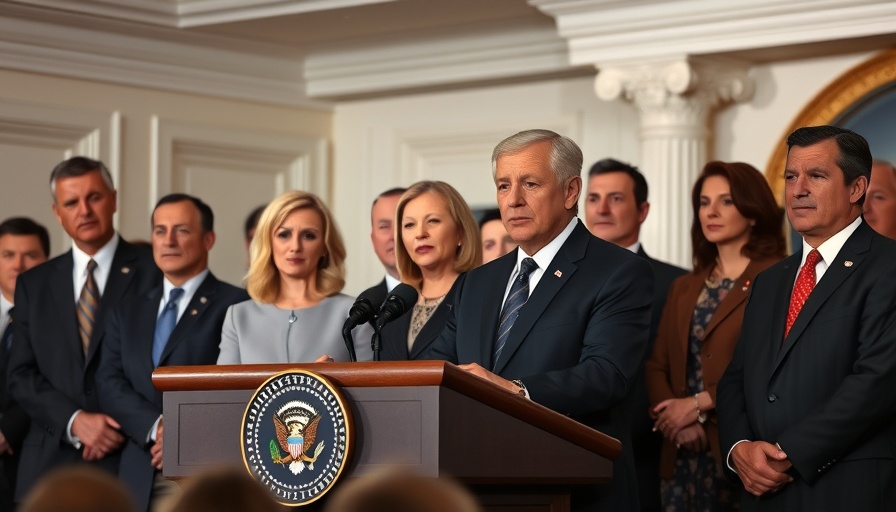
The National Guard's Role in D.C.: A Security Perspective
President Trump's recent announcement to deploy the National Guard in Washington, D.C., sends a clear message about the administration's approach to public safety in the nation’s capital. With escalating tensions over crime, particularly following an assault involving government staff, the President's decision underscores the administration's commitment to bolstering security. In his news conference, Trump emphasized his administration's stance of making Washington 'safer and more beautiful than ever before.'
Contextualizing Crime in Washington, D.C.
Contrary to Trump's assertions, violent crime in D.C. has been on a downward trend. Recent data shows a 26% decrease in violent crime compared to last year, with a notable 28% drop in robberies alone. This discrepancy between the administration's portrayal and actual crime statistics raises questions about the motivations behind the deployment of federal forces and the broader implications for local governance.
Contrasting Views: The Mayor's Perspective
Mayor Muriel Bowser has been vocal in her disagreement with the characterizations coming from Trump. Having continuously engaged with the administration on crime issues, she asserts that local efforts have led to demonstrable progress in reducing crime. This factual context is vital in evaluating the President's claims and decisions regarding federal intervention, which some may view as an overreach.
Potential Impacts on D.C. Communities
Trump's approach to homelessness and crime, as detailed in his announcement, has stirred a mix of concern and support among different community groups. His statement about relocating the homeless population 'immediately' echoes a punitive tone that risks alienating vulnerable populations. Critics argue that this approach lacks the compassion and comprehensive strategic planning necessary to address homelessness effectively.
Public Response and the Political Landscape
The political ramifications of Trump's actions are palpable, as public sentiment regarding law enforcement and federal oversight continues to evolve. The concerns voiced by local leaders like Mayor Bowser reflect a growing tension between federal and local authorities, particularly regarding narratives of public safety. Such dynamics could position communities in D.C. at the heart of broader national discussions around policing and reform.
Considering the Future of Security in U.S. Cities
Looking forward, the deployment of the National Guard could mark a pivotal moment for how cities across the nation handle crime and security. As D.C. becomes a case study, other cities will likely watch closely to assess the effectiveness of federal intervention and its impact on local crime metrics. Will this approach lead to a safer capital, or will it exacerbate existing divisions and issues within urban areas?
The coming weeks may provide crucial insights into how these decisions are perceived by the public and their long-term implications on governance and community relations in D.C. As the situation unfolds, it's essential for citizens to remain informed and engaged, critically evaluating the evolving narrative around crime and intervention in their communities.
 Add Element
Add Element  Add Row
Add Row 



Write A Comment